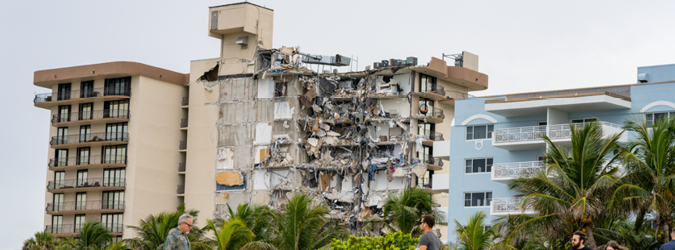Property Condition Disclosure Act Amended; New Requirements Go Into Effect in March
2.28.2024

Since March 1, 2002, R.P.L. § 462(1) of the Property Condition Disclosure Act (Article 14) (PCDA)1 has provided that a seller of residential real property shall deliver to the buyer or the buyer’s agent a Property Condition Disclosure Statement (PCDS), making representations by the seller in answer to 48 questions, in a form set forth in § 462(2) and instructing the seller to answer all the questions, prior to the signing by the buyer of a contract of sale. There were four choices as to answers: yes, no, unknown and not applicable. The seller could be sued for failure to answer all the questions2 or for checking unknown if the seller had actual knowledge of a defect.3 The form provided a blank after the last question where the seller could further explain any item and attach additional pages (the seller should carefully consider doing that).4 It further provided that a copy of the PCDS signed by the parties shall be attached to the purchase contract, and that nothing in the article was intended to prevent the parties from entering into agreements with respect to the physical condition of the property to be sold, including, but not limited to, agreements for the sale of the real property “as is.”5
Section 462(3) provided that nothing in the article shall require a seller to undertake or provide for any investigation or inspection of his or her residential property or to check any public records. Section 465 provided for only two remedies: (1) the $500 credit for failure to deliver a PCDS; and (2) a seller who provides a PCDS or fails to provide a revised PCDS6 shall be liable only for actual damages for willful failure to provide truthful answers based on actual knowledge, in addition to any other equitable or statutory remedy.7 Section 466 imposed a duty upon a listing real estate broker to timely inform the seller of his or her obligation to deliver the PCDS. It further provided that a buyer’s real estate broker, or the seller’s real estate broker if the buyer is not represented by a real estate broker, was required to inform the buyer of the right to receive a PCDS. Section 467, titled “Liability,” stated: “Nothing in this article shall be construed as limiting any existing legal cause of action or remedy at law, in statute or in equity.” Note that the PCDA did not expressly disallow a waiver of the duty to comply with its obligations.
Many attorneys for sellers downstate (First and Second Departments) have advised their clients to give the $500 credit instead of the PCDS because they consider that many of the questions are vague and some have “catch-all” provisions that could become traps for the unwary, and unfairly expose the seller to second-guessing and claims for misstatements, omissions or other noncompliance.8 After all, in New York, under the doctrine of caveat emptor and aside from the PCDA, a seller of residential property has no duty to make any statements at all about the condition of the property (except for active concealment, affirmative misrepresentation or partial disclosure). The buyer has a duty to use the means available to check the condition, and the buyer must justifiably rely on a misrepresentation. Neither the “as is” nor merger clauses will generally protect the seller from a claim of fraud.9 The seller has generally only been held liable for fraudulent non-disclosure of material latent defects in situations where the buyer did not use means available to check or seller’s conduct amounted to “active concealment,”10 or where the seller had “superior knowledge”11 or there were “special facts.”12
On September 22, 2023 the governor signed A.1967/S.5400 into law as Chapter 484 of the Laws of 2023. That Chapter deleted from the PCDS form the statement that in the event a seller fails to deliver a PCDS prior to the buyer signing a binding contract of sale, the buyer shall receive at the closing a $500 credit against the purchase price. It also added seven new questions about flood hazard areas (100-year and 500-year floodplains according to the Federal Emergency Management Agency’s (FEMA’s) current flood insurance rate maps), federal requirement to maintain flood insurance, FEMA assistance for flood damage, current flood insurance, FEMA elevation certificate, and filing of a claim for flood damage with an insurance provider. This increases the number of PCDS questions from 4913 to 56. The Chapter amended § 465 to change its title from “Remedy” to “Liability” and to delete from subsection (1) the requirement of a $500 credit for failure to deliver a PCDS. It kept “Nothing contained in this article shall be construed as limiting any existing legal cause of action or remedy at law, in statute or in equity.” Subsection (2) about liability for actual damages for provision of a PCDS remains. Section 467, which stated the same thing, was repealed. The effective date for this amendment is March 20, 2024. The Assembly/Senate Memorandum on the bills focused on flood risk disclosure (it falsely stated that no other state has an opt-out credit option—see $500 credit in current Connecticut Residential Property Condition Disclosure Report).14
The New York State Association of Realtors (NYSAR) filed a Memorandum in Opposition stating that the bill would upend decades of practice, that there are problems with some of the flood-related questions, that FEMA’s flood maps are outdated and inaccurate, that flood zone information is often inaccessible and unreliable, and that buyers would be better served relying on a home inspector rather than mandatory seller disclosure.15 The Real Property Law Section (RPLS) was unable to file a memorandum in connection with the bill.
The amended PCDA takes us into new and uncharted territory.
The $500 credit by the seller will be gone on March 20, 2024. But the amended PCDA only provides for liability for actual damages for a seller who provides a PCDS or fails to provide a revised PCDS. The statute no longer addresses a remedy or liability for the failure of the seller to provide a fully completed PCDS in the first place. So could the seller refuse to deliver one without giving a $500 credit?
With the $500 seller credit deleted from the PCDA, it is difficult to foresee what liability the seller would have if a fully completed PCDS is not delivered prior to signing a contract. It might: (1) enable the buyer to claim rescission of the contract because of that violation of the PCDA statute;16 or (2) enable the buyer to sue to compel delivery of a PCDS; or (3) enable the buyer to have a defense to a suit by the seller for anticipatory breach when the buyer cancels;17 or (4) bolster a claim that a condition defect was peculiarly within the seller’s knowledge, under the “superior knowledge” or the “special facts” doctrines; or (5) bolster a claim of actual concealment.18 Under the amended PCDA, with the $500 credit deleted, what would a court do if the seller did not answer all the questions (e.g., answering only the nine General Information questions or not answering old questions 30 and 31 as to flooding and/or the seven new questions about flood hazards and damage)?19
A suit by the buyer to compel delivery of a fully completed PCDS would be costly and time-consuming and probably not very practical in a residential sale. Is the PCDS then reduced to being a handy checklist for the buyer’s attorney and inspector? On the other hand, could the buyer successfully refuse to sign a contract of sale without first receiving a fully completed PCDS?
The most effective method of discouraging use of the credit would probably have been to increase the amount—perhaps to $1,000 or $10,000.
But could the seller try to get the buyer to waive delivery of a PCDS in a provision in the contract? The result may depend on the bargaining positions of the parties. I question whether the provision in § 461(1) about not preventing the parties from entering into agreements as to physical condition would be interpreted to allow the parties to agree to a waiver. But would a waiver be enforceable? The PCDA does not expressly forbid a waiver of its provisions. It remains to be seen whether such a waiver would be enforced by New York courts. On the one hand, New York courts tend to enforce waivers of statutory rights when they are entered into knowingly and on an arm’s-length basis and are not void a against public policy, based on the strong public policy in favor of freedom of contract.20 Note that in the 159 MP Corp. case the commercial lease was negotiated at arm’s length by sophisticated, counseled parties of equal bargaining power. The Court of Appeals, in a 5-4 decision, noted that waivers may be void in situations where the public policy in favor of freedom of contract is outweighed by another weighty and countervailing public policy, such as the Rent Stabilization Law (the three dissenters argued against a waiver, noting that the Legislature’s ability to declare contractual terms void as against public policy does not disable the common law from doing so as well, in a dissent that was longer than the four-judge majority opinion). It also noted that the absence of a provision of a waiver in a statute is a significant factor in militating against invalidation of a contract term on public policy grounds. However, in the case of an attempt to obtain a waiver of delivery of a PCDS in a residential sale, a court may well view the public policy of consumer protection of a probably unsophisticated, and perhaps uncounseled, residential purchaser as outweighing the public policy in favor of freedom of contract. But when would a buyer try to claim that a waiver was unenforceable: with a claim for rescission, or as a defense to a suit for anticipatory breach? What would be the downside for a seller’s attorney to insist on a waiver?
The recent amendment to the PCDA seems to raise more questions than answers—questions that will perhaps be addressed by New York courts as they preside over litigation between aggrieved buyers and sellers in coming years.
Karl Holtzschue was chair of the section (2007-2008), co-chair of the Title and Transfer Committee (1998-2004), co-chair of the Legislation Committee (2008-2014) and recipient of the section’s professionalism award in 2012. He is author of Holtzschue on Real Estate Contracts and Closings (PLI).
This article originally appeared in the New York State Bar Association Real Property Law Journal in December 2023. If you would like to join the Real Property section please go to nysba.org/realproperty.
Endnotes
7 There is no mention in the PCDA of any other remedy for failure to deliver a PCDS.
8 Holtzschue, supra note 5 at § 1:1.9.
9 Holtzschue, supra note 5 at § 2:2.11 [A][1], [A][2], [A][4], and [A][5].
14 Conn. Gen. Stats. § 20-327c.
18 Suggested by Prof. Robert J. Sein.






